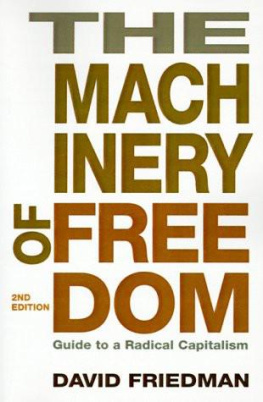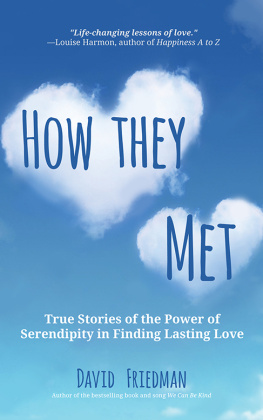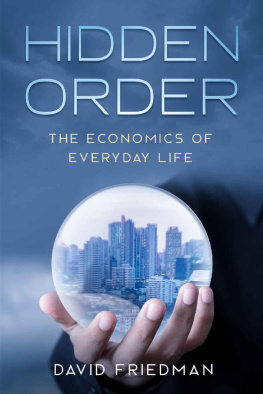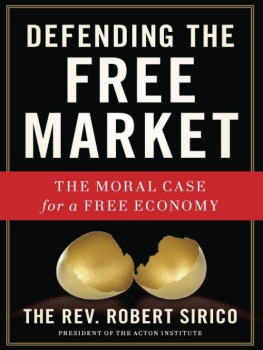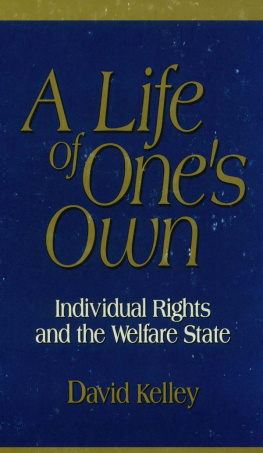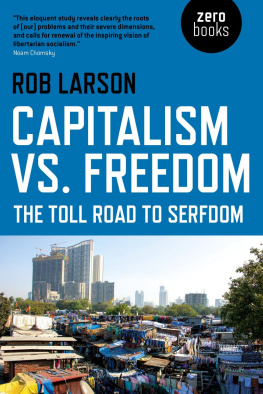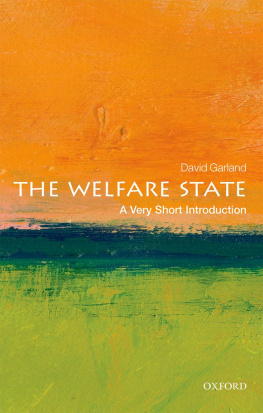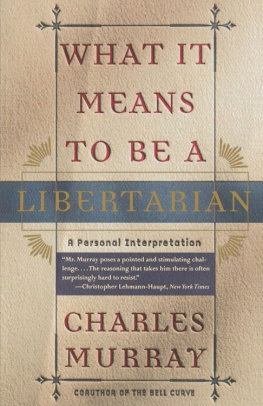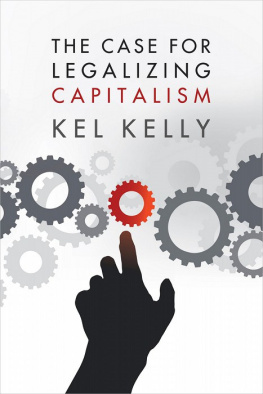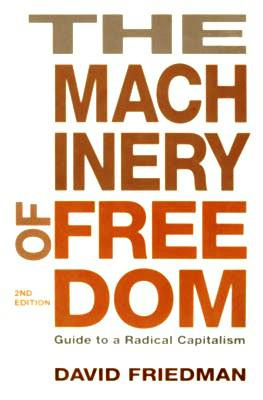Table of Contents
THE MACHINERY OF FREEDOM
GUIDE TO A RADICAL CAPITALISM
second edition
David Friedman
This book is dedicated to
Milton Friedman
Friedrich Hayek
Robert A. Heinlein,
from whom I learned
and to
Robert M. Schuchman,
who might have written it better
Capitalism is the best. It's free enterprise. Barter. Gimbels, if I get really rank with the clerk, 'Well I don't like this', how I can resolve it? If it really gets ridiculous, I go, 'Frig it, man, I walk.' What can this guy do at Gimbels, even if he was the president of Gimbels? He can always reject me from that store, but I can always go to Macy's. He can't really hurt me. Communism is like one big phone company. Government control, man. And if I get too rank with that phone company, where can I go? I'll end up like a schmuck with a dixie cup on a thread.
LENNY BRUCE
Why can't you see?
We just want to be free
To have our homes and families
And live our lives as we please.
DANA ROHRABACHER
WEST COAST LIBERTARIAN TROUBADOUR
CONTENTS
PART I: IN DEFENSE OF PROPERTY
IN DEFENSE OF PROPERTY
A NECESSARY DIGRESSION
LOVE IS NOT ENOUGH
ROBIN HOOD SELLS OUT
THE RICH GET RICHER AND THE POOR GET RICHER
MONOPOLY I: HOW TO LOSE YOUR SHIRT
MONOPOLY II: STATE MONOPOLY FOR FUN AND PROFIT
EXPLOITATION AND INTEREST
I DON'T NEED NOTHING
PART II: LIBERTARIAN GRAB BAG OR HOW TO SELL THE STATE IN SMALL PIECES
SELL THE SCHOOLS
A RADICAL CRITIQUE OF AMERICAN UNIVERSITIES
THE IMPOSSIBILITY OF A UNIVERSITY
ADAM SMITH U.
OPEN THE GATES
SELL THE STREETS
99 AND 44/100THS PERCENT BUILT
A FIRST STEP
COUNTERATTACK
MIGHT HAVE BEEN
IS WILLIAM F. BUCKLEY A CONTAGIOUS DISEASE?
IT'S MY LIFE
THE RIGHTS OF YOUTH
CREEPING CAPITALISM
IF YOU WANT IT, BUY IT
SCARCE MEANS FINITE
POLLUTION
BUCKSHOT FOR A SOCIALIST FRIEND
PART III: ANARCHY IS NOT CHAOS
WHAT IS ANARCHY? WHAT IS GOVERNMENT?
POLICE, COURTS, AND LAWSON THE MARKET
THE STABILITY PROBLEM
IS ANARCHO-CAPITALISM LIBERTARIAN?
AND, AS A FREE BONUS
SOCIALISM, LIMITED GOVERNMENT, ANARCHY, AND BIKINIS
NATIONAL DEFENSE: THE HARD PROBLEM
IN WHICH PREDICTION IS REDUCED TO SPECULATION
WHY ANARCHY?
REVOLUTION IS THE HELL OF IT
THE ECONOMICS OF THEFT, OR THE NONEXISTENCE OF THE RULING CLASS
THE RIGHT SIDE OF THE PUBLIC GOOD TRAP
HOW TO GET THERE FROM HERE
PART IV: FOR LIBERTARIANS:AN EXPANDED POSTSCRIPT
PROBLEMS
WHERE I STAND
ANSWERS: THE ECONOMIC ANALYSIS OF LAW
PRIVATE LAW ENFORCEMENT, MEDIEVAL ICELAND, AND LIBERTARIANISM
IS THERE A LIBERTARIAN FOREIGN POLICY?
THE MARKET FOR MONEY
ANARCHIST POLITICS: CONCERNING THE LIBERTARIAN PARTY
G. K. CHESTERTONAN AUTHOR REVIEW
PREFACE TO THE SECOND EDITION
Most of this book was written between 1967 and 1973, when the first edition was published. I have made only minor changes to the existing material, in the belief that the issues and arguments have not changed substantially over the past 15 years. In some cases the reader will find the examples dated; Chapter 17, for example, was written when Ronald Reagan was governor of California. Where this seemed to be a serious problem I have updated examples or added explanatory comments, but in most places I have left the original text unaltered. Most current examples will not remain current very long; hopefully this book will outlast the present governor of California as well.
I have followed the same policy with regard to numbers. Figures for the number of heroin addicts in New York or U.S. Steel's share of the steel industry describe the situation as of about 1970, when the first edition was being written. When looking at such numbers, you should remember that prices and nominal incomes were about a third as high in 1970 as in 1988, when this preface is being written. Numbers that are purely hypothetical ("If a working wife can hire an Indian maid, who earned_______dollars a year in India... "), on the other hand, have been updated to make them more plausible to a modern reader. The appendices have also been updated, mostly by my friend Jeff Hummel.
These are all minor changes. The major difference between this edition and the first is the inclusion of eight new chapters, making up Part IV of the book.
One thing I should perhaps have explained in my original preface, and which has puzzled some readers since, is the apparent inconsistency among the chapters. In Chapter 10, for instance, I advocate a voucher system, in which tax monies are used to subsidize schooling, but in Part III I argue for a society with no taxes, no government, and therefore no vouchers.
Part II of the book is intended to suggest specific reforms, within the structure of our present institutions, that would produce desirable results while moving us closer to a libertarian society. A voucher system, which moves us from schooling paid for and produced by government to schooling paid for by government but produced on a competitive market, is one such reform. In Part III I try to describe what a full-fledged anarcho-capitalist society might look like and how it would work. Part III describes a much more radical change from our present institutions than Part II while Part II describes how the first steps of that radical change might come about.
One reason for writing a book like this is to avoid having to explain the same set of ideas a hundred times to a hundred different people. One of the associated rewards is discovering, years later, people who have incorporated my ideas into their own intellectual framework. This second edition is dedicated to one such person. I cannot honestly describe him as a follower or a disciple, since most of our public encounters have been debates; I believe that his best-known views are wrong and possibly dangerous. He is merely someone who starts out already knowing and understanding everything I had to say on the subjects of this book as of 1973, which makes the ensuing argument very much more interesting.
For which reason this second edition is dedicated to Jeffrey Rogers Hummel.
PREFACE TO THE FIRST EDITION
My political views seem natural and obvious to me. Others find them peculiar. Their peculiarity consists largely of carrying certain statements, familiar enough in political oratory, to their natural conclusions.
I believe, as many say they believe, that everyone has the right to run his own life to go to hell in his own fashion. I conclude, as do many on the left, that all censorship should be done away with. Also that all laws against drugs marijuana, heroin, or Dr. Quack's cancer cure should be repealed. Also laws requiring cars to have seat belts.
The right to control my life does not mean the right to have anything I want free; I can do that only by making someone else pay for what I get. Like any good right winger, I oppose welfare programs that support the poor with money taken by force from the taxpayers.
I also oppose tariffs, subsidies, loan guarantees, urban renewal, agricultural price supports in short, all of the much more numerous programs that support the not-poor often the rich with money taken by force from the taxpayers often the poor.
I am an Adam Smith liberal, or, in contemporary American terminology, a Goldwater conservative. Only I carry my devotion to laissez-faire further than Goldwater does how far will become clear in the following chapters. Sometimes I call myself a Goldwater anarchist.
These peculiar views of mine are not peculiar to me. If they were, I would be paying Harper and Row to publish this book, instead of Harper and Row paying me. My views are typical of the ideas of a small but growing group of people, a 'movement' that has begun to attract the attention of the national media. We call ourselves libertarians.
Next page
